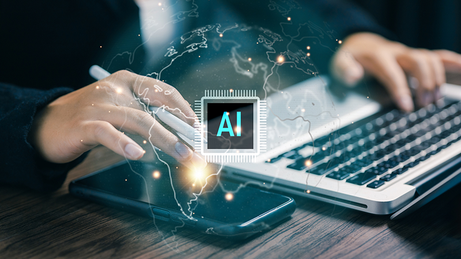
The accounting profession is evolving rapidly as the world becomes increasingly interconnected, digitalized, and conscious of ethical and environmental concerns. CPAs in 2025 will need to embrace key developments in ethics, Environmental, Social, and Governance (ESG) reporting, artificial intelligence (AI), updates to accounting standards, and tax regulations to remain competitive and effective.
Ethical Leadership in a Digital Era
As technology becomes more integrated into accounting, CPAs face ethical dilemmas in data usage, transparency, and decision-making. The importance of maintaining public trust and professional integrity has never been greater. CPAs must commit to continuous ethics education to navigate issues like data privacy, cybersecurity, and conflicts of interest.
AI and automation, while offering efficiency, raise ethical concerns about bias in decision-making algorithms and the potential misuse of sensitive financial data. CPAs need to understand these technologies deeply, not just as users but as ethical overseers, ensuring compliance with established professional codes of conduct.
Expertise in ESG Reporting
Environmental, Social, and Governance (ESG) reporting is becoming a cornerstone of corporate accountability. Stakeholders, including investors, regulators, and consumers, increasingly demand transparent ESG disclosures. CPAs must develop expertise in frameworks like the Global Reporting Initiative (GRI), the Sustainability Accounting Standards Board (SASB), and the forthcoming International Sustainability Standards Board (ISSB) guidelines.
The ability to quantify and report on non-financial metrics such as carbon emissions, diversity initiatives, and governance structures will set CPAs apart. As regulators enforce mandatory ESG disclosures, CPAs must help organizations align their strategies with sustainability goals and regulatory requirements.
Harnessing the Power of Artificial Intelligence (AI)
AI is transforming the accounting profession by automating routine tasks, enabling real-time data analysis, and uncovering insights that drive strategic decision-making. CPAs who can harness AI to optimize audit procedures, enhance fraud detection, and forecast financial trends will have a competitive edge.
However, mastering AI requires more than technical knowledge. CPAs must understand its limitations, such as potential biases in machine learning models, and ensure that AI-driven insights are transparent and reliable. Staying informed about advances in AI and incorporating them responsibly will be essential.
Navigating Evolving Standards and Tax Regulations
Accounting standards are evolving to keep pace with globalization, technological advancements, and emerging business models. For example, changes to revenue recognition, updates to International Financial Reporting Standards (IFRS)and financial instrument standards have profound implications for financial reporting.
Staying ahead of updates to accounting standards and tax laws, including corporate tax, GST/HST, estate planning and personal income tax, is essential. CPAs must act as trusted advisors, guiding businesses and individuals through complex compliance requirements while identifying opportunities for efficiency and strategic planning.
To thrive in 2025, CPAs must go beyond traditional technical expertise. They must embrace continuous learning, ethical stewardship, and technological proficiency. By mastering emerging areas like ESG reporting, leveraging AI, staying current with standards updates, and navigating complex tax systems, CPAs can remain indispensable as trusted advisors in an ever-changing business world. Adaptability, innovation, and a commitment to lifelong learning will be the keys to success for CPAs in the years to come.



